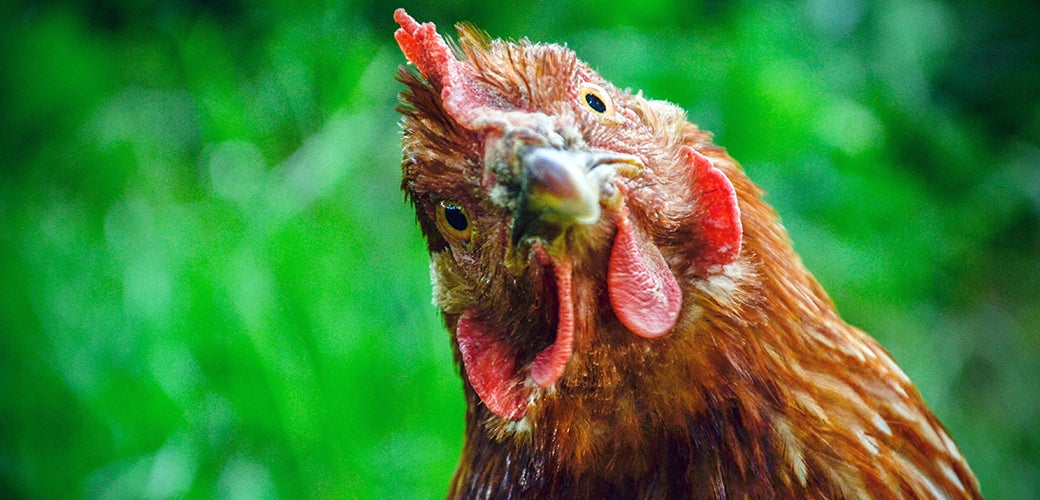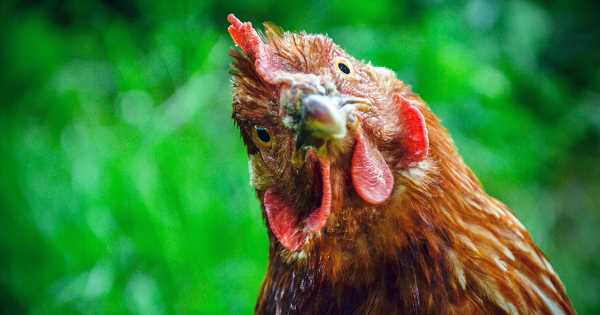Did Somebunny Ask About More Humane Eggs?


The Easter egg: dyed, decorated, filled with candy or baked into a Sunday pastry, it’s a longstanding tradition in the U.S. It’s estimated that 180 million eggs are purchased for Easter every year. Given the sheer numbers, this makes Easter an important moment to consider the hens who produce these eggs.
The reality of egg production on factory farms is grim for the birds involved. The vast majority of the 375 million [PDF] laying hens raised to produce our country’s eggs spend most of their lives in “battery cages,” many of which provide less floor space per bird than an iPad®, meaning the birds cannot even spread their wings. These cages lack the most basic materials required for hens to express their natural behaviors, like laying their eggs in nests or perching, let alone foraging, which is how hens would otherwise spend most of their time. As a result, distressed hens peck at one another, causing serious injury and even death.
You have the power to change this system. This Easter, if you are choosing to buy eggs, it’s easy to find higher-welfare options so that you can be sure that your grocery purchases are not supporting cruel factory farming.
If you’re shopping for eggs:
- Look for the labels of one of the ASPCA-recommended animal welfare certifications, such as Animal Welfare Approved or Certified Humane® on egg cartons.
- Consider plant-based egg substitutes. Bob’s Red Mill has a plant-based egg replacer that is a great alternative for baked goods. Crafty Counter has plant-based hard-boiled egg products, and for scrambles, quiches or omelets, Spero Foods makes a plant-based pepita egg alternative. YUM!
If navigating packaging claims in the grocery store seems eggs-austing, we get it. Here’s a little egg-splainer!
- Cage-Free: A cage-free claim on its own means that the hens were not raised in cages, which is important, but not everything a hen needs to lead a good life. The term cage-free accompanied by one of the labels of our recommended certifications means that the certified egg products come from farms without battery cages and necessary enrichments for the birds are provided as well.
- Free-Range: Free-range is a loosely defined term, and the amount and quality of outdoor space can vary enormously, so the label itself isn’t that meaningful. But egg products with the term “free-range” on the packaging plus one of the certifications we recognize come from farms where hens are raised with ample access to outdoor areas with growing vegetation.
- Pasture-Raised: The term “pasture-raised” is not well defined or regulated, but for eggs with a “pasture-raised” claim that is backed up by one of our recommended certifications, hens have access to a quality outdoor environment to forage, one that has cover and dust-bathing areas so the hens can keep their feathers clean.
To find local Animal Welfare Certified eggs in your state, check our list of certified farms. If you are searching for higher-welfare eggs in your neighborhood supermarket, look for brands like Vital Farms, NestFresh®, Nellie’s and Kipster that showcase their earned Certified Humane label.
If you’re in Iowa, Minnesota, Wisconsin or Illinois, check out Jóia Food Farm’s Animal Welfare Approved pasture-raised eggs using the farm’s online store.
Plus, our Shop With Your Heart Grocery list has dozens of welfare-certified and plant-based egg products so that you can remove factory farming from your Easter celebration!
For additional tips on finding more humane food and how you can advocate for farm animals, join our Factory Farming Task Force. Together, we can build a kinder, healthier and more sustainable world.
Source: Read Full Article
